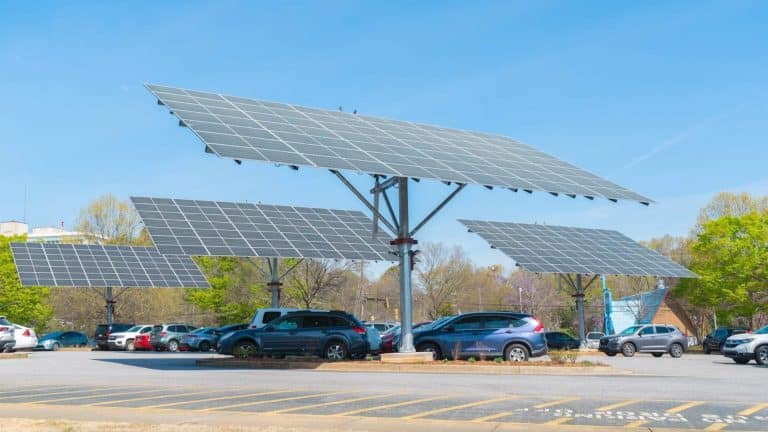Brady Watson, former Civic Engagement Coordinator for the Southern Alliance for Clean Energy, also contributed to this blog post.
This post is part of a series examining where 2022 candidates running for public offices in the Southeast stand on key energy and climate issues. Note: The Southern Alliance for Clean Energy does not support or oppose candidates or political parties. Links to reports, candidate websites, and outside sources are provided as citizen education tools.

In this blog post, we examine the policies and positions of Stacey Abrams, Democratic candidate running for Governor in Georgia. Also in this series, we profile Brian Kemp, the incumbent Republican candidate for Governor in Georgia. Election Day is November 8, 2022, and also features an election for U.S. Senate in the state of Georgia between incumbent Democratic candidate Senator Raphael Warnock and Republican candidate Herschel Walker.
Stacey Abrams grew up in Gulfport, Mississippi. Her parents moved the family to Georgia to pursue careers in ministry, and Stacey attended DeKalb County public schools. Abrams graduated as valedictorian from Avondale High School and has degrees from Spelman College, the LBJ school of Public Affairs at the University of Texas, and Yale Law School. She served in the Georgia House of Representatives as Minority Leader, and also ran for Governor in 2018.
Renewable Energy and Energy Efficiency
Abrams vows to increase training for advanced energy jobs to meet goals for clean energy and energy efficiency by leveraging the Inflation Reduction Act. She also aims to use federal funds for electric grid modernization, tax credits, and renewable energy integration. She also plans to leverage federal funding to develop a Georgia Green Development Bank to create more clean energy.
Climate Change
Abrams’ climate plan begins by saying, “we must better protect our abundant environmental resources, reduce greenhouse gas emissions, and decarbonize, and leverage the economic benefits of advanced energy to secure a more resilient future.” The plan includes resilience and protection for vulnerable areas and addressing healthcare needs through Medicaid expansion.
Electric Transportation
To support the adoption of electric vehicles, Abrams plans to utilize funding from the Bipartisan Infrastructure Law, and the Inflation Reduction Act to expand access to EV charging stations. She also mentions the development of high-speed rail.
Energy Equity and Energy Burden
To build climate resilience, Abrams plans to target resources to Coastal and South Georgia locations due to the unique environmental challenges there. As Governor, Abrams states she would develop energy efficiency targets, while also incentivizing investments in energy efficiency and demand response programs to reduce emissions and build resilience during extreme weather events. She also plans to establish a Coastal Resilience Response Plan and a South Georgia Readiness Response Plan.
High-Risk Energy: Coal, Nuclear, Oil, Gas
Abrams serves on the board of Heliogen, whose mission is to replace fossil fuels with concentrated sunlight.
Voter Information
The voter registration deadline for the U.S. Senate election in Georgia is October 11, and early voting begins October 17. Election Day for the 2022 midterms will be held on November 8, 2022. Find voting information in Georgia.
Read the Where the Candidates Stand on Climate and Clean Energy Blog Series
#CandidatesOnEnergy2022



